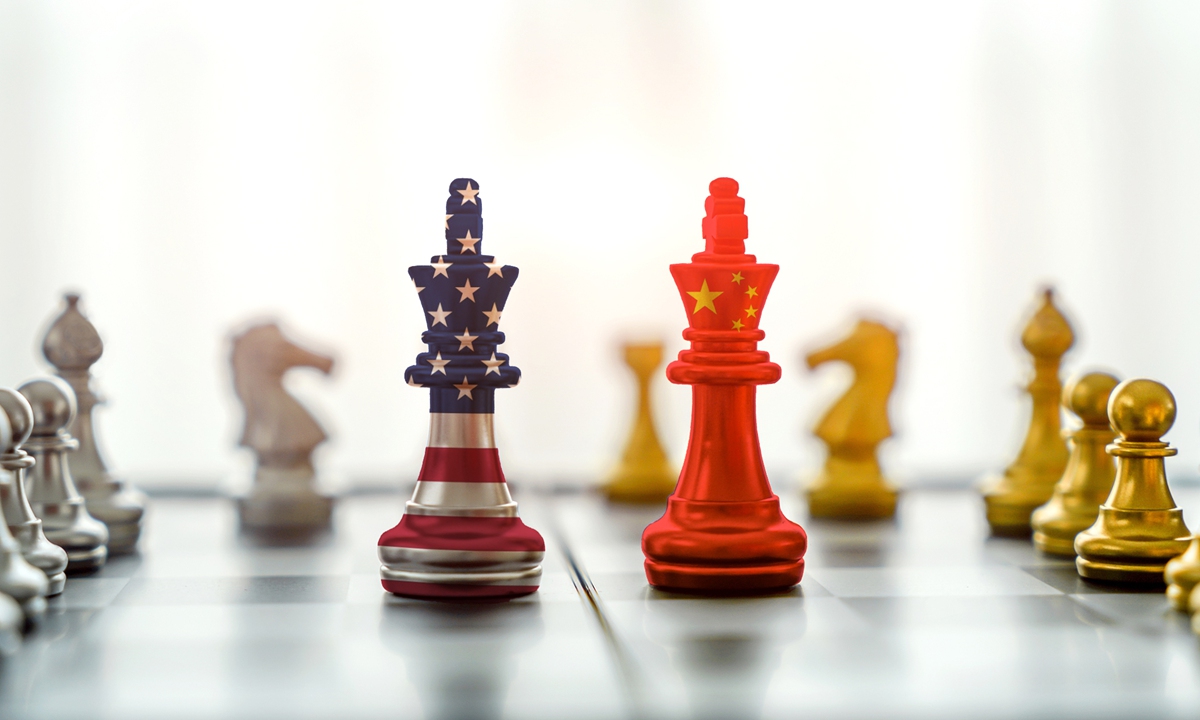US Defenses Secretary Esper planning visit to China a sign of 'genuine goodwill' or 'smoke bomb'?
By Guo Yuandan Source: Global Times Published: 2020/7/22 0:59:36

Following media reports that US Defense Secretary Mark Esper hopes to visit China this year amid escalating US-China tensions, particularly on the South China Sea, several experts on military relations between two countries told the Global Times on Tuesday that China needs time to find out if such a stance represents genuine goodwill or is just a "smoke bomb."
Esper said Tuesday he had spoken to his Chinese counterpart several times and hopes to make the trip by year's end, according to media reports. The goals of the trip would be to "establish the systems necessary for crisis communications and reinforce our intentions to openly compete in the international system in which we all belong," he was quoted as saying.
China and the US have been seen tensions flare up on a series of matters including the island of Taiwan and the South China Sea. Facing continuous military provocations by the US, the Chinese People's Liberation Army (PLA) recently conducted maritime target attack drills in the South China Sea and deployed warplanes on an island in the region at a time when the US aggressively sent warplanes for close-up reconnaissance and warships including aircraft carriers for exercises and operations in the name of "freedom of navigation."
His visit conveys three messages, an expert from the military who is familiar with the China-US military ties told the Global Times on Tuesday. "First, it shows that the US is willing to communicate, and unwilling to see the deadlock situation between China and the US get out of control," the expert said.
It also proves that Chinese and American military has been in contact and at this moment, such a message released from Esper also aims to test public opinion.
Since the beginning of this year, the US has been trying hard to contain, repress and suppress China, and if this situation continues the two sides would likely be pushed into a military conflict, the expert said.
"The US does not want military conflict, which would lead to unbearable consequences," the expert said, noting that the US is determined to defend its unshakeable interests in the Asia-Pacific region, but the outbreak of military conflict with China will also undermine its interests.
The US side wants to strike a balance between containment and maximizing its interests without losing control, which will lead to focusing on how to control a crisis. For the moment, the two sides have the Code for Unplanned Encounters at Sea and Rules of Behavior for the Safety of Air and Maritime Encounters to keep frontline force under control and avoid strategic misjudgment or other emergency situations.
"However, it's more difficult to handle the current situation with the current rules, which are also insufficient to control conflict outbreak at crucial moments. As a result, the two sides need to communicate further," the expert said.
Another observer told the Global Times that China should let the situation evolve for a while, to see what arrows are in the US quiver. Then China would closely observe the US moves, said the analyst. The next moves by the US military will prove if Esper's gesture is a "smoke bomb" or represents new US moves towards China.
The analyst said that under current circumstances, it is not right timing for Esper's China visit and China needs to form its own tactics.
"China does not have to react to every move by the US."
Li Haidong, a professor at the Institute of International Relations of the China Foreign Affairs University, told the Global Times that Esper's announcement was definitely authorized by the US government. The US public is also reluctant to see Washington being involved into another clash, which would not help Trump's reelection chances.
Trump can manufacture skirmishes, but he won't drag the US into another conflict, which does not meet the US public's common interest.
Li pointed out that Esper's gesture also reflected the Trump administration's tactics towards China, which is using every card in their hand. But it also proved that Trump is very afraid China-US relations get out of control, a scenario that could sabotage this year's US presidential election, and put US long-term interests in jeopardy.
"Thus we can say that Esper's gesture is related, or even serves Trump's reelection."
Li believed that China should stick to two basic points on the bilateral relation: first would be, no conflict, no confrontations, mutual respect and cooperation; the second would be requiring the US to respect China's sovereignty and rights of development. China will be willing to conduct dialogue with US on all-levels based on the two points.
"If the US makes positive gestures, they will get a similar response from China," said Li.
Posted in: DIPLOMACY